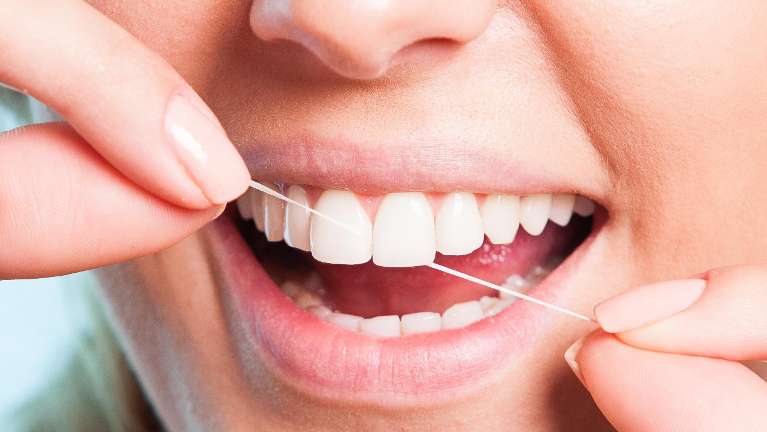
It’s common practice to brush your teeth at least twice a day: once in the morning after breakfast and once at night, following dinner. This is good practice, although best practice involves a regular regimen of flossing in between the teeth using specialised string known as dental floss. Dental floss is locally available from chemists or supermarkets.
Flossing ensures that your teeth stay bright and white and your gums shiny and pink. Flossing can also prevent tooth decay, gum disease and other oral conditions like gingivitis. It does a wonderful job at ensuring your smile stays good looking.
Teeth and Gum Care
Regular use of dental floss removes plaque. It assists in preventing the condensation of plaque in between visits to the dentist. Plaque forms when food particles stay trapped in between teeth and gums after brushing. Plaque can cause teeth to decay if left untreated. Flossing in combination with regular brushing is the best technique to ensuring exceptional oral health care for yourself.
Unhealthy gums can contribute to the risk of you losing teeth to rot or requiring a root canal to replace damaged teeth. Gum diseases like gingivitis may be easily treatable, but they are uncomfortable while they persist. Brushing your teeth twice per day is healthy, but it may not necessarily prevent you from developing gum infection and problems with your teeth. You should also floss regularly to ensure your gums stay in good condition.
Disease Prevention
In reality, flossing daily secures against gum disease by removing plaque and other food particles. A range of factors can impact overall oral health, such as drinking alcohol, smoking, and diet. Depending on what you consume, you may suffer from oral conditions without proper oral care. Flossing regularly in combination with brushing prevents oral disease and guarantees good oral health.
If flossing provokes bleeding gums, it’s a sign that your oral health is not as good as it should be. Bleeding gums after brushing or flossing is an indication that the skin vessels in your gums are weak from under-stimulation. This can be fixed quite easily with more-frequent flossing. Frequent flossing increases the strength of skin vessels in the gums and assists them from dying from mistreatment.
Aesthetic Function
There’s nothing more noticeable when you’re talking to someone who hasn’t flossed properly than the pieces of food stuck in their teeth. Flossing regularly removes debris from in between the teeth and gums and produces a brilliant smile. While it’s only anecdotal, there is evidence that flossing after a meal reduces the urge to continue eating which can be a helpful psychological tool when you’re trying to drop a few pounds. Regardless, flossing after a meal genuinely advances oral health and can keep your mouth and teeth looking and feeling incredible.
For more detailed information about the benefits of flossing please feel free to reach out to Sparkling Dental Monday to Friday. We are available via telephone and email and will always respond to your enquiries quickly. Book an appointment today to get your teeth and gums checked and walk away feeling refreshed and relaxed.




